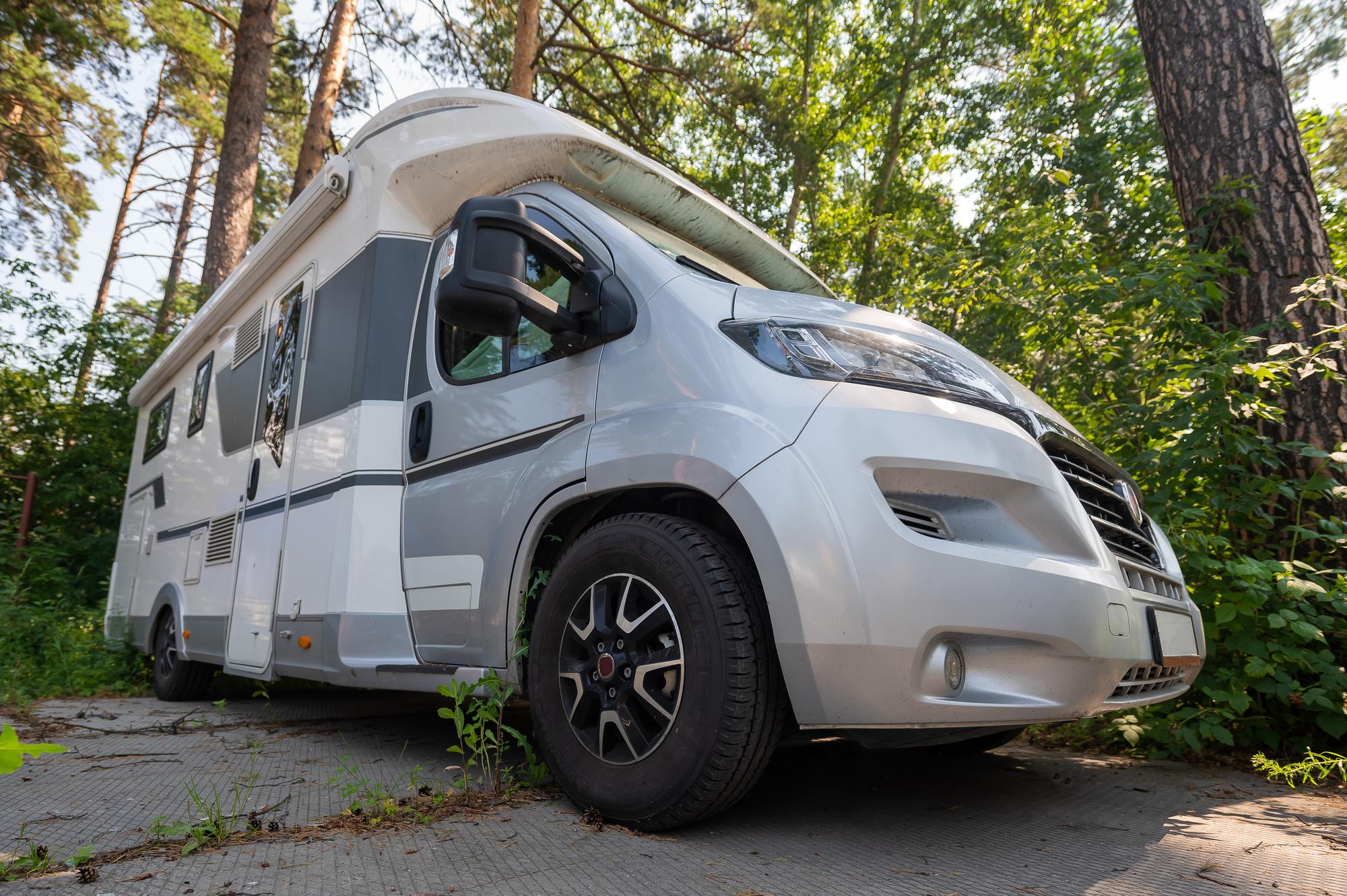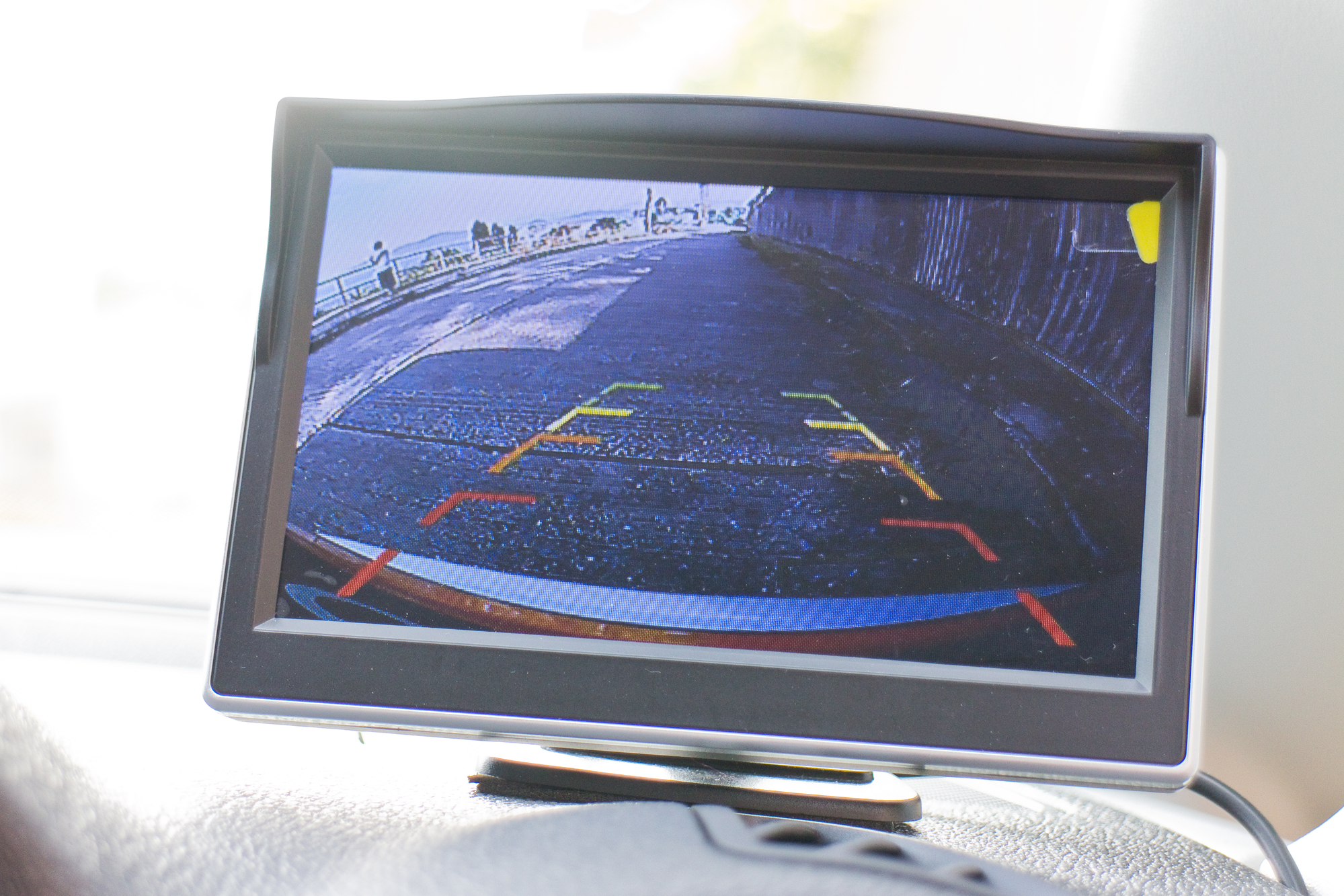
As you stare out at the picturesque landscape from your RV’s window, you can’t help but feel a sense of freedom and adventure. But amidst the excitement of your travels, have you stopped to consider the safety and security of your cherished home on wheels?
It’s easy to get caught up in the thrill of the open road, but protecting your RV investment is essential. In today’s article, we’ll explore RV security and safety measures that every owner should know to protect their motorhome or trailer from theft.
From essential items to innovative and practical tips, we’ll equip you with the knowledge to safeguard your RV and thousands of dollars worth of investment and ensure peace of mind on your journey.
So, buckle up and get ready to embark on a journey of protection and tranquility.
Top Devices and Sytems for Keeping Your Recreational Vehicle Safe
When it comes to securing your RV, there are several top devices and systems to add an extra layer of security that you should consider.
Locks and Security Systems to Protect Your RV from Theft
To ensure the security and safety of your RV, equip it with top-notch surveillance and security alarm systems. These devices will give you peace of mind while you’re on the road or parked at a campground.
Here are three essential tools for protecting your RV or trailer from theft:
Alarm system
Install a reliable and loud alarm system that will alert you and your campground neighbors if someone tries to break into your vehicle. Look for one with motion sensors and a loud siren to deter potential thieves.
Security cameras
Set up wireless surveillance cameras around your RV to monitor any suspicious activity. Choose cameras with high-resolution video quality and night vision capabilities for optimal RV security. A surveillance camera system can utilize cloud storage but if you want the footage to be saved locally, opt for one with SD card storage.
GPS tracking devices
Install a GPS tracking system to keep track of your RV’s location at all times. With the rise in RV thefts, having a GPS tracking device installed can provide valuable real-time information about the location of your RV, making it easier to recover in case of theft.
However, this won’t only help in case of theft but also provide peace of mind knowing you can easily locate your vehicle from any remote location.
Motion-detection lights
Having reliable and bright motion-sensing exterior lights is important for visibility and safety during nighttime driving. Even if these lights with motion detectors can be turned out at the slightest movement from a squirrel, it’s better to be safe than sorry and have motion-detection lights as a great deterrent.
Locking systems
A sturdy lock is the first line of defense against theft and unauthorized access to your RV. Look for high-quality locks that are resistant to picking and tampering.
Consider investing in deadbolt locks for your doors and storage compartments. These locks provide an extra layer of RV security and peace of mind.
It’s crucial to secure your travel trailer, motorhome, or tow vehicle when parked at a campground or campsite, and a key tool in that fight is wheel locks. Use wheel locks to prevent theft and to deter potential thieves.
Additional locks to think about include a steering wheel lock in the case of motorhomes, hitch locks or coupler locks for travel trailers or towable vehicles, cab door locks, and even window locks.
Investing in these security systems will ensure the safety of your recreational vehicles and give you the freedom to explore without worries.
Remember to always keep your keys secure and never leave them in plain sight.
Essential Tools and Safety Equipment for Your RV
It’s not just about security and keeping thieves out but also keeping yourself and your family safe from accidents and other dangers with the RV.
Investing in the right safety equipment and tools for your RV is crucial for protecting your family, friends, and valuable investment. When it comes to other safety equipment and tools, there are a few key items that every RV owner should have.
Smoke and carbon monoxide detectors
RVs, especially motorhomes, are big machines you’re traveling and sleeping in, and having both a smoke detector and carbon monoxide detector are common sense items to have and protect your family and yourself.
Propane gas stop
Most RVs have a small propane gas generator that makes traveling on an RV very convenient. However, leaks from your tank on the road are a potential risk, and one way to counter the risk is by installing a simple gas stop valve. Some have them pre-installed, but if not, it can help you automatically stop the flow of gas after detecting a leak.
Fire extinguishers
You need a fire extinguisher in an office, a home, an industrial building, and even at event venues. Anywhere where people are spending time, you need one, and that is true also for a home on wheels. A fire extinguisher is an essential and emergency item you can’t avoid having in your RV.
Battery monitor
If your RV’s battery runs out, it’s not going to be easy to recharge it with just your car’s jumper cables. Take a good battery monitor to check its level at any time, especially before and after heading out on the road. Having a spare battery or investing in a solar panel charger will also be a good tip.
Emergency kits
Have an emergency kit for both road emergencies and first aid. Your road emergency equipment should be jumper cables, a tool kit, some RV jacks, and a first aid kit with medical supplies like gauze, medicine, swabs, alcohol, and more.

Backup cameras
They’re common now in most new cars and some motorhomes, but many older or affordable travel trailers or tow vehicles don’t have those handy backup cameras for when in reverse. They’re an essential item now, especially for towed and fifth-wheel campers.
Satellite communication technology
Here, we’re talking about satellite phones and now satellite internet. Even with today’s modern and vast cell phone coverage, there are still many parts of North America where dead zones mean no smartphone data or calls. Satellite communication technology works in any remote location.
Tire pressure monitoring
Consider investing in a tire pressure monitoring system, which can help you avoid any potential tire blowouts and provide a smoother and safer driving experience.
Surge protector
A surge protector is essential for an RV because it helps protect sensitive electrical equipment from power surges, voltage spikes, and electrical fluctuations. These can occur due to lightning strikes, faulty campground wiring, or unstable power sources. By using a surge protector, you can safeguard your RV’s appliances, electronics, and electrical systems from potential damage, ensuring a more reliable and worry-free camping experience.
Insurance and road service coverage
Having insurance coverage that includes roadside assistance for your RV is crucial as RVs tend to be larger and more complex vehicles than regular cars, making them more susceptible to mechanical breakdowns or accidents on the road. With road service, you can rest assured that help will be just a phone call away in case of a flat tire, engine failure, or any other unforeseen event.
RVs are also often used for long road trips or camping adventures, which means they may be in unfamiliar or remote areas where finding immediate help can be challenging. Roadside assistance ensures that you won’t be stranded for long, providing peace of mind and minimizing any disruptions to your travel plans.
Lastly, the cost of repairs for an RV can be significantly higher than those for a regular car, making insurance coverage with roadside assistance even more valuable as it can help offset these expenses and protect your investment during any road trip.
Regular maintenance
The best offense is a good defense, and the best accident prevention is regular maintenance of your RV. Regular maintenance will pick up on any potential risks with the engine, transmission, tires, electrical systems, brakes, and more.
RV Park and Campground Safety Tips and Measures
The drive from home went well, with no issues, and now you’re at the RV or national park, setting up camp. But you still need to keep several tips in mind before leaving your trailer behind and going out on a hike:
Stay Vigilant
Always be aware of your surroundings and any potential risks or issues. Keep an eye out for suspicious activities or individuals that may pose a threat to your safety or the security of your travel trailer, tow vehicle, or motorhome. Remember that urban areas actually require more vigilance than rural areas.
Choose Safe RV parks
Before booking a park, research its reputation and security measures. Research motorhome and caravan theft statistics in that area and prepare accordingly. Look for parks that have gated entrances, security cameras, and well-lit areas. Additionally, consider the location and proximity to emergency services.
Remember to Check if RV Parks are Pet Friendly
Not all RV camping sites are pet-friendly, or even national or state parks. Research and make sure that it’s also safe for them, meaning no dangerous wildlife or weather conditions. You might be all comfortable in the cold with your winterwear, but your pets might not be able to handle it.
Prepare For Adverse Weather Conditions
Be aware of the weather forecast for your travel destinations. Extreme weather can pose risks to both your RV and your and your family’s safety. Make sure to secure your awnings, check tire pressure, and have emergency supplies in case of severe weather conditions.
Just as important is being considerate of environmental hazards if the weather takes a turn for the worst. Don’t stay too close to lakes, rivers, reservoirs, or canyons during the rainy season or next to a lot of brush during wildfire conditions.
Hide Valuable Items
Furthermore, keep important documents, such as insurance information and emergency contacts, easily accessible. That also means smartphones, tablets, laptops, jewelry, etc. Theft is more common than you think on campgrounds, unfortunately.
Have a Backup Plan
Always have a backup plan when looking for RV destinations. The RV park might be closed because of weather or other reasons, a road might close, or a natural disaster might make it impossible to get to another state. Have a backup plan in these cases so you don’t completely miss out on your RV vacation.
Don’t Leave Home Without an RV Protection Plan
By implementing the right RV security devices, following safety tips, and maintaining your RV properly, you can ensure the safety and security of your investment.
Additionally, practicing campground safety and being prepared for emergencies will further enhance the security of your RV.
So, take the necessary steps to transform your RV into a fortress on wheels and enjoy worry-free adventures.
And if you don’t have a dream motorhome or travel trailer yet, Southeast Financial can quickly use its vast network to get you the best financing deal for one. Or, if you are already a proud RV owner, we offer RV protection plans that include roadside assistance and extended maintenance coverage.

